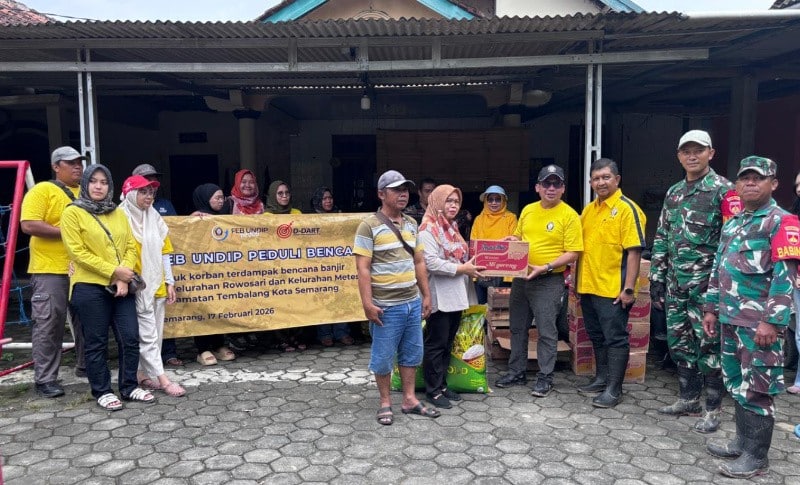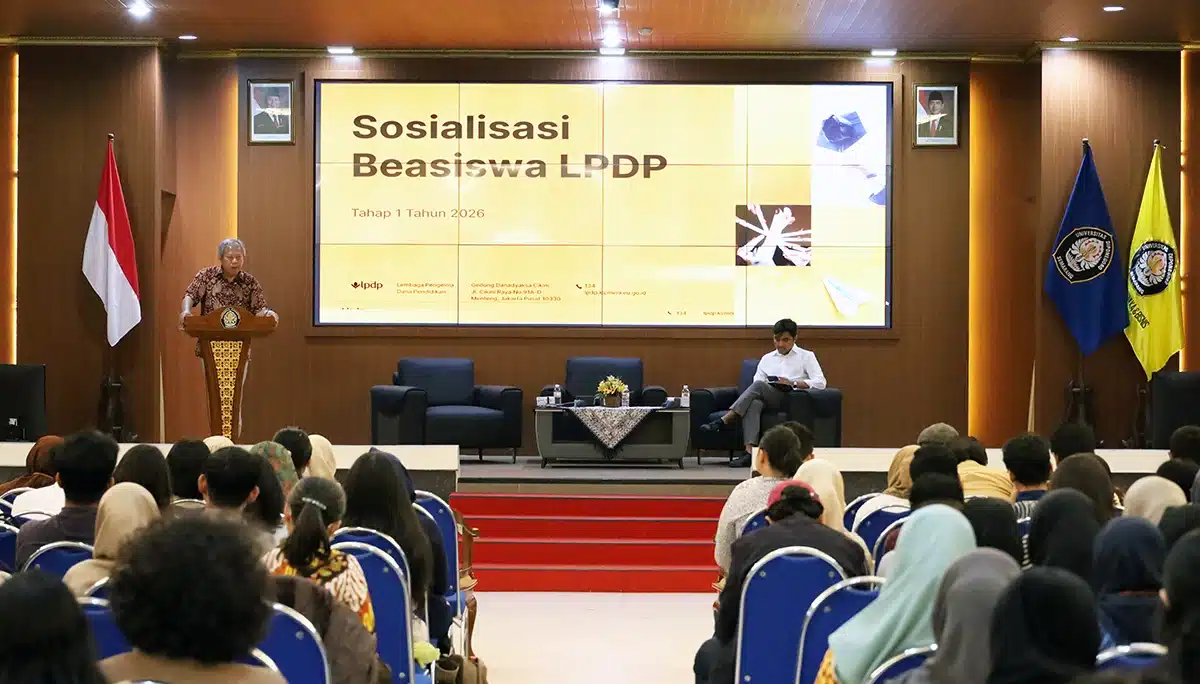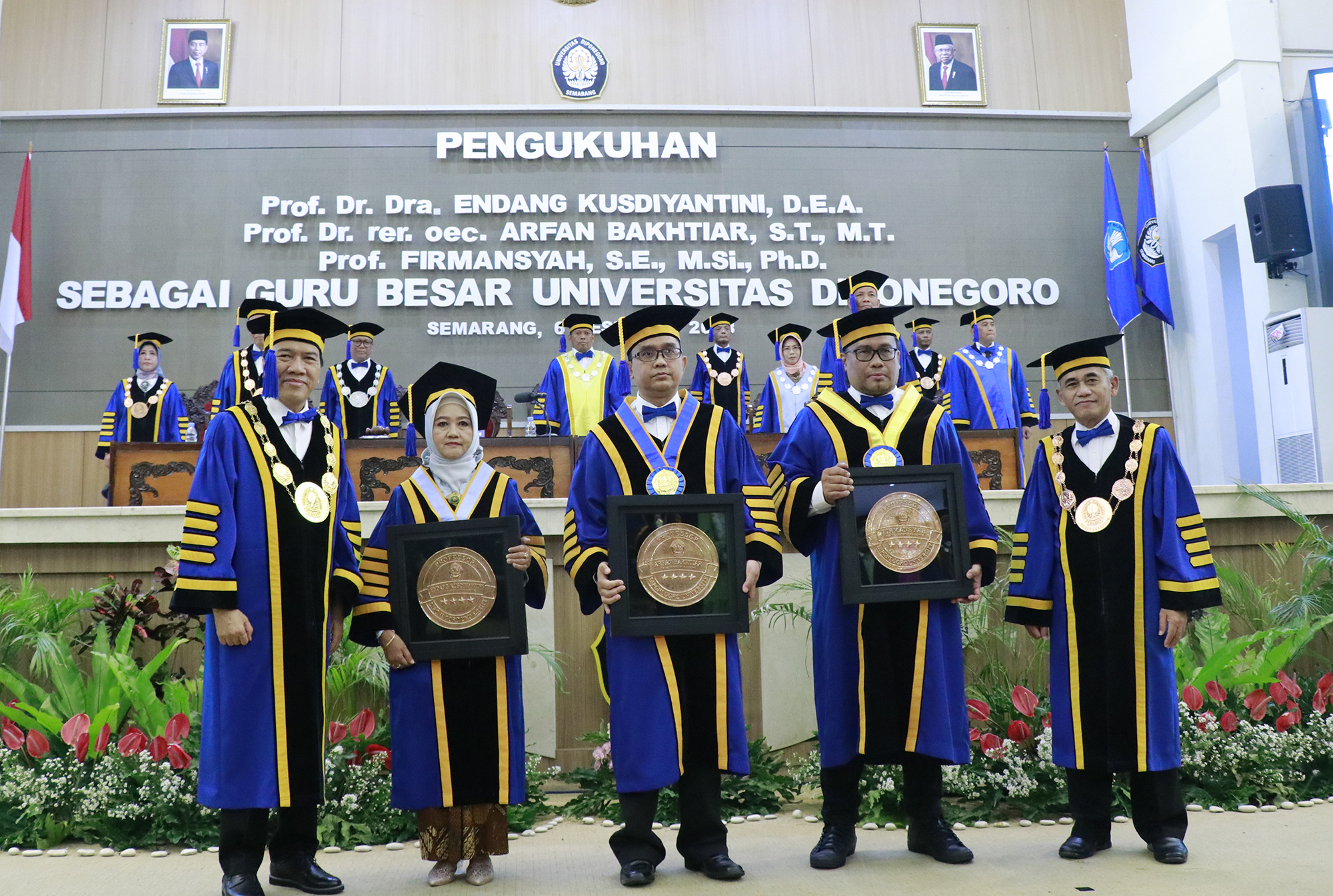Undip inaugurated three professors on Wednesday, December 6, 2023, at the Prof. Soedarto, S.H. Building, Tembalang, in the event of the Inauguration Ceremony as Professor at Diponegoro University. The lecturers who were inaugurated as professors were Biology expert professor Prof. Dr. Dra. Endang Kusdiyantini, D.E.A. (Faculty of Science and Mathematics), Industrial Engineering expert professor Prof. Dr. rer. oec. Arfan Bakhtiar, S.T., M.T. (Faculty of Engineering), and Economics Expert Professor Prof. Firmansyah, S.E., M.Si., Ph.D. (Faculty of Economics and Business).
In her scientific presentation entitled “Contribution of Microbial Carotenoid Pigments to Innovation in Biochemical Preparations,” Prof. Dr. Dra. Endang Kusdiyantini, D.E.A. explained that the use of β-carotene as a carotenoid coloring contains non-toxic natural pigments so it is widely used in the health, food and cosmetics industries. The demand for natural carotenoids continues to increase, and the obstacles faced include the expensive production process, extraction and instability of natural dyes in food processing/other industries, as well as limited natural dye resources.
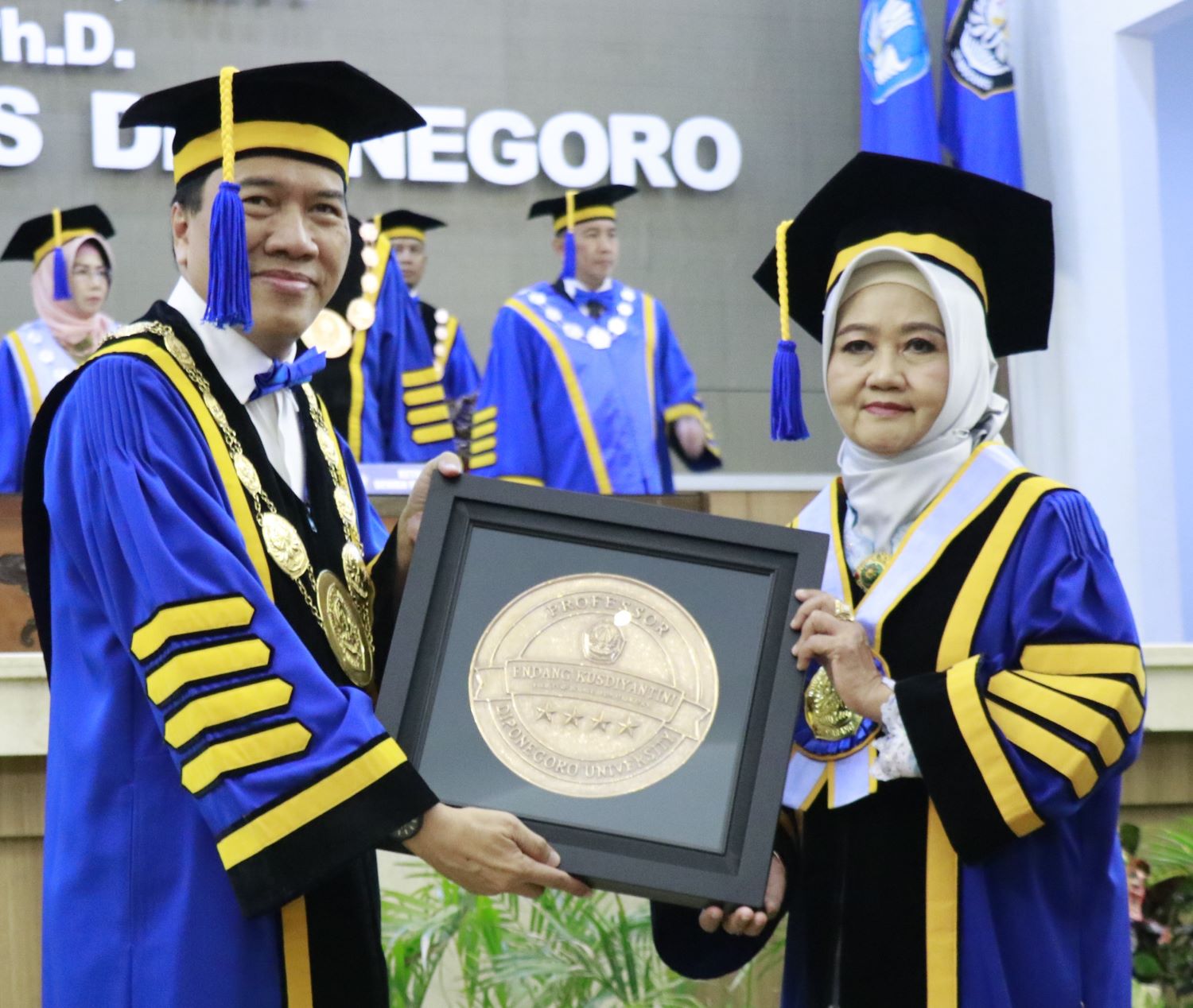
Therefore, studies on carotenoid sources, production methods and applications continue to be carried out. Prof. Endang and the team at the Biotechnology Laboratory, Department of Biology, Faculty of Science and Mathematics Undip focused on isolating pigment-producing microbes from the environment, including Serratia marcescens, Rhodococcus sp., Monascus purpureus, Rhodosporidium paludigenum and Phaffia rhodozyma through fermentation technology. “The development of pigments is a challenge in itself, especially in relation to the food industry, which must comply with aroma, taste, safety and nutritional value,” explained the professor of the Faculty of Science and Mathematics Undip.
Meanwhile Prof. Dr. rer. oec. Arfan Bakhtiar, S.T., M.T. explained the scientific presentation “Strategy for Improving Product Quality Through Strengthening the Role of National Quality Infrastructure.” National Quality Infrastructure (NQI) includes standardization, measurement, testing, certification and supervision of products and services. “Product quality assurance is one of the competitive advantages, and of course, this effort must continue. Improving National Quality Infrastructure needs to be carried out through the synergy of all stakeholders and government support,” he said.
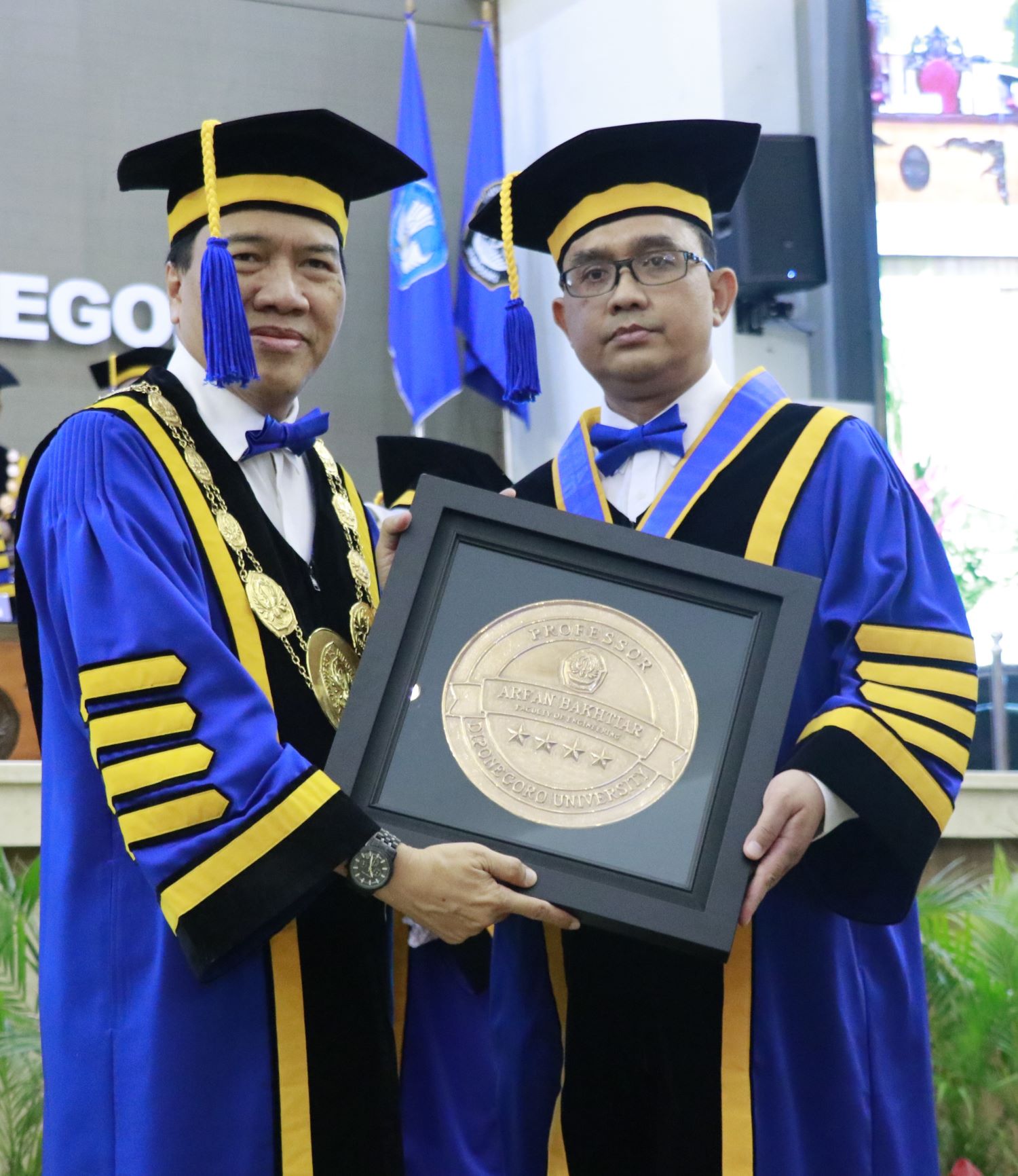
The National Quality Infrastructure has 3 pillars, namely standardization, metrology and conformity assessment. Prof. Arfan said, “Seven strategies that can be implemented to improve the quality of National Quality Infrastructure are (1) Development and Strengthening Standards, (2) Increasing Awareness and Education, (3) Increasing Capabilities and Competencies, (4) Increasing Involvement of Relevant Parties, (5) Increasing International Cooperation, (6) Increasing Supervision and Law Enforcement, and (7) Providing Easy Access and Services.”
The Undip economics expert professor, Prof. Firmansyah, S.E., M.Si., Ph.D., presented “Quantitative Analysis in Economic Studies: Implications and Challenges for Economic Theory.” In the dynamic modern economic era, complex challenges require in-depth understanding and sophisticated quantitative analysis tools, so analytical tools are the key to understanding current and future economic dynamics. Economic theory remains an essential basis for formulating hypotheses, predicting policy effects, and creating quality policies. An integrated approach that combines solid economic theory with advanced quantitative analysis techniques is crucial.
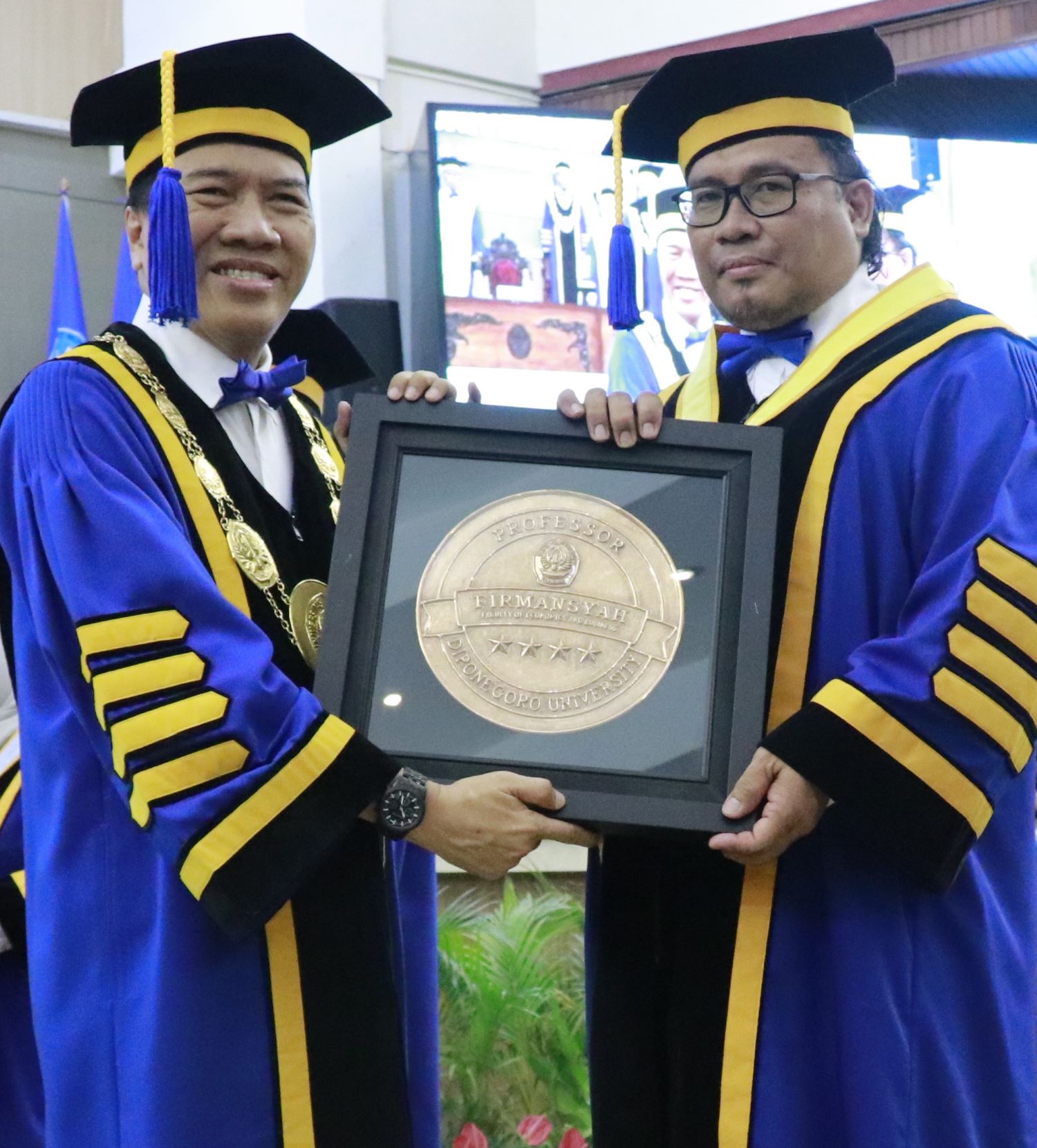
“Several reasons economic theory is important in developing quantitative analysis tools are conceptual guidance, testable hypotheses, model validation, overcoming uncertainty, generalizing findings, developing new concepts, and the basis for policy. The challenges that may be faced in integrating theory and quantitative methods are conceptual gaps, assumptions that are not always met, measuring abstract concepts, lack of methodological innovation, modeling uncertainty, and differences in paradigms,” explained Prof. Firmansyah. (Titis-Public Relations)



